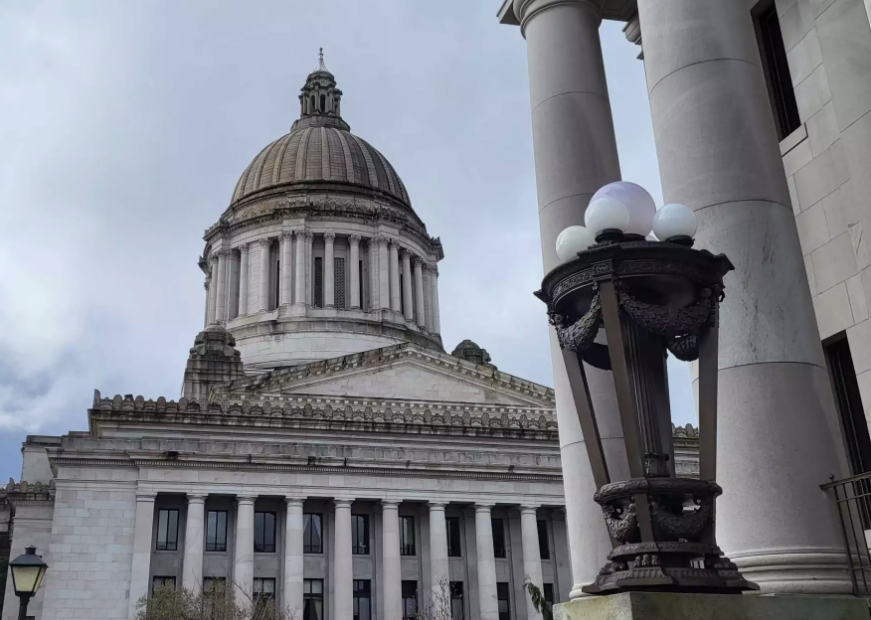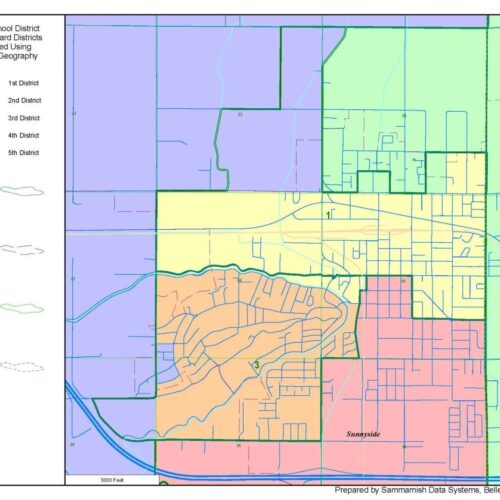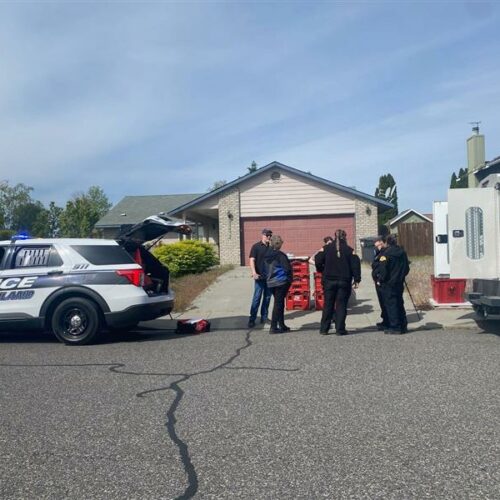
WA lawmakers hear initiatives, kill big bills in week 8 of legislative session
By: Jeanie Lindsay, Northwest News Network
During the penultimate week of Washington’s 2024 legislative session, lawmakers left behind some major bills, committees held public hearings and voted on some high-profile initiatives, and several measures crossed the finish line.
Facing a final committee deadline Monday, several major policies stalled for likely the final time this year without getting voted on, like:
- House Bill 2114, which would have capped the amount landlords could raise tenants’ rent in a single year.
- House Bill 1932, which would have allowed cities and towns to change their elections to even numbered years.
- House Bill 2160, which would have helped create more affordable housing near transit centers.
- House Bill 2065, which would have allowed people in prison serving sentences that were made longer for crimes they committed as kids to have their cases reviewed and sentences possibly shortened.
- House Bill 1579, which would have created an independent prosecutor’s office to look into and possibly charge police officers for killing people on the job.
Even though those bills’ journeys to become law stopped short this year, some or all of them will more than likely reappear in the next legislative session in 2025.
Voter initiatives start to move
In the middle of the week, lawmakers held three public hearings on a series of voter initiatives. The first hearing was for Initiative 2111, which would ban new income taxes. The state currently doesn’t have an income tax, but Rep. Jim Walsh (R-Aberdeen), who filed the paperwork for the initiatives, says it gives Washington voters the opportunity to continue the state’s long history of not having such a tax.
Two more initiatives got hearings too: I-2081 would outline parents’ rights to oversee their children’s schooling, and I-2113 would ease certain restrictions on when police can pursue fleeing vehicles.
Committees in the House and Senate later voted on the initiatives, passing them Friday. The measures now head to the floor of each chamber. Lawmakers cannot change the proposals in any way and the governor cannot veto them, meaning if they are approved on each side of the rotunda, they become state law.
But some lawmakers who supported the proposals in committee could change which way they vote on the floor. At least one legislator, Sen. Manka Dhingra (D-Redmond) has said even though she voted to pass the police pursuit measure out of committee, she plans to vote no on the Senate floor.
Legislation nearing or crossing the finish line
Lawmakers also spent a lot of time on the floor in each chamber this week to keep approving legislation ahead of another cutoff deadline Friday. Some bills went to the governor’s desk to be signed into law, including:
- House Bill 1455, banning child marriage
- House Bill 1618, removing the statute of limitations for survivors of child sex abuse to bring civil lawsuits
- House Bill 1999, creating new legal penalties for creating or distributing deepfake pornography of adults without consent, or of minors
- House Bill 2368, for the state to coordinate support resources and services for immigrants and refugees
- House Bill 1879, to name the state’s tribal curriculum after the late Senator John McCoy
- House Bill 1961, strengthening penalties for animal cruelty
- Senate Bill 5893, to provide gate money, basic clothing, and transportation to people leaving prison
- Senate Bill 5670, allowing students to earn college credits through the state’s Running Start program during the summer before their junior year in high school
Meanwhile, other bills were sent back to their original chamber for final approval or further negotiation. The bills still could end up on the cutting room floor, but are steps away from becoming law.
Several gun measures are nearing the governor’s desk, like House Bill 1903, requiring people to report lost or stolen firearms within 24 hours after finding out about it; House Bill 2118, creating new security requirements for gun sellers; and Senate Bill 5444, which would add zoos, bus stops, and public libraries to the list of places where a person cannot openly carry a firearm or other weapons.
Some key environmental legislation is on the brink of final passage too. The House spent several hours debating Senate Bill 6058 before it passed Thursday, which would lay the groundwork for the state to link its carbon market with California and Quebec’s. If a voter initiative to repeal the program succeeds, the bill could be moot anyway. The Senate’s attempt to pass House Bill 1589, which will allow utilities to start planning how to move away from natural gas, took up a bunch of time on Thursday as well. The bill was pulled from the floor on a technicality, with lawmakers expecting Friday morning to possibly pass it before the end of the day.
Other bills nearing the finish line include:
- Senate Bill 5009, banning the use of hog tying by law enforcement.
- Senate Bill 6109, clarifying that exposure to fentanyl should be considered as courts weigh whether to remove a child from their parents’ home in child abuse or neglect cases.
- House Bill 5908, extending foster care services to youth between 18 and 21 years old.
- Senate Bill 5838, to create an artificial intelligence task force.
- Senate Bill 6105, a so-called “Stripper Bill of Rights” that creates new worker protections and rules for adult entertainment establishments.
In the final days of this year’s session, the Legislature will also strike a deal on changes to the state’s current two-year budget. Session is scheduled to adjourn “Sine Die” on March 7.















